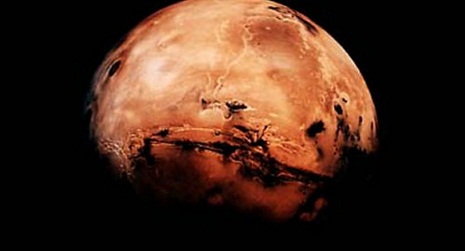Cosmic cancer threatens manned Mars mission

The team believes previous studies failed to recognise that cosmic rays can spread from both the directly affected cell to secondary cells, damaging the DNA and turning them, too, into cancerous cells.
Shielding methods were also said to have only “modestly decreased” the amount of radiation the mice were exposed to.
Cosmic rays, which can also cause cataracts, nerve damage and problems with blood circulation, are made up of high-energy atomic and subatomic particles that emanate from exploding stars and black holes.
Astronauts are exposed to much higher radiation levels than people on Earth, as the planet’s atmosphere provides a natural protection from harmful energy. Crew members aboard the International Space Station are also protected by the Earth’s magnetic field which diverts cosmic rays away from Earth’s orbit.
While there are “significant differences” between the cancer rates in mice and humans, the findings could still hinder manned deep-space exploration in the future.
Various agencies are developing methods of withstanding the effects of radiation in space, including a radiation-absorbent vest and a satellite capable of deploying an artificial magnetic shield to divert radiation away from a chosen site.
NASA is aiming to send human missions to Mars in the 2030s, while China has said it hopes to get there sooner, beginning with its first independent Mars landing mission in 2020.














-1741770194.jpg&h=190&w=280&zc=1&q=100)






-1741765030.jpg&h=190&w=280&zc=1&q=100)

























